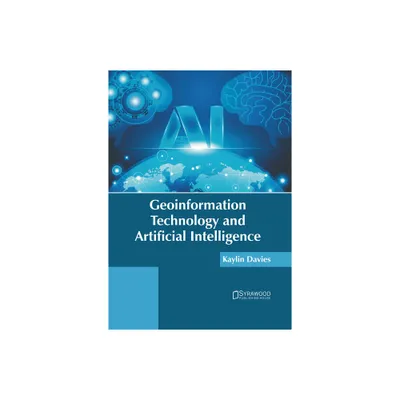Home
Militarizing Artificial Intelligence: Theory, Technology, and Regulation
Loading Inventory...
Barnes and Noble
Militarizing Artificial Intelligence: Theory, Technology, and Regulation
Current price: $180.00


Barnes and Noble
Militarizing Artificial Intelligence: Theory, Technology, and Regulation
Current price: $180.00
Loading Inventory...
Size: Hardcover
*Product Information may vary - to confirm product availability, pricing, and additional information please contact Barnes and Noble
This book examines the military characteristics and potential of Artificial Intelligence (AI) in the new global revolution in military affairs.
Offering an original perspective on the utilization, imagination, and politics of AI in the context of military development and weapons regulation, the work provides a comprehensive response to the question of how we might reflect on the AI revolution in warfare and what can be said about the ways in which this has been handled. In the first part of the book, AI is accommodated, both theoretically and empirically, in the strategic context of the 'Revolution in Military Affairs' (RMA). The book offers a novel understanding of autonomous weapons as multi-layered composite systems, pointing to a complex, non-linear interplay between evolutionary and revolutionary dynamics. In the second section, the book provides an impartial analysis of the related politics and operations of power, whereby increases in military budgets and R&D of the great powers are met and countered by advocacy networks and scientists campaigning for a ban on lethal autonomous weapons. As such, it moves beyond popular caricatures of ‘killer robots’ and points out some of the problems which result from over-reliance on such imagery.
This book will be of much interest to students of strategic studies, critical security studies, arms control and disarmament, science and technology studies and general International Relations.
Offering an original perspective on the utilization, imagination, and politics of AI in the context of military development and weapons regulation, the work provides a comprehensive response to the question of how we might reflect on the AI revolution in warfare and what can be said about the ways in which this has been handled. In the first part of the book, AI is accommodated, both theoretically and empirically, in the strategic context of the 'Revolution in Military Affairs' (RMA). The book offers a novel understanding of autonomous weapons as multi-layered composite systems, pointing to a complex, non-linear interplay between evolutionary and revolutionary dynamics. In the second section, the book provides an impartial analysis of the related politics and operations of power, whereby increases in military budgets and R&D of the great powers are met and countered by advocacy networks and scientists campaigning for a ban on lethal autonomous weapons. As such, it moves beyond popular caricatures of ‘killer robots’ and points out some of the problems which result from over-reliance on such imagery.
This book will be of much interest to students of strategic studies, critical security studies, arms control and disarmament, science and technology studies and general International Relations.


















